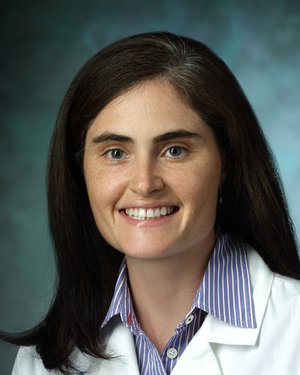Background
Dr. Habela completed a Medical Scientist Training Program at the University of Alabama, Birmingham. She received her PhD in Neurobiology in 2008 and her MD in 2010. After medical school, she specialized in child neurology, and completed 2 years of pediatrics residency and 3 years of child neurology residency at the Johns Hopkins Hospital in 2015. She then completed another 2 years of training specifically focused on the diagnosis, characterization and medical and surgical management of patients with epilepsy during an Epilepsy Fellowship at Johns Hopkins.
Dr. Habela’s clinic specializes in pediatric neurology and epilepsy. Her clinical focus in on the care of patients with severe epilepsy with or without other neurodevelopmental disorders that have not been easily controlled with medications. She is also focused on the genetic causes of epilepsy and other neurodevelopmental disabilities with the hope that increasing our understanding of the genetic causes of epilepsy and neurodevelopmental disabilities will improve treatment.
Dr. Habela’s basic science research is focused on the genetic mechanisms regulating appropriate proliferation, migration and integration of neurons and glial cells in both the prenatal and postnatal developing brain and how aberrations in these processes result in neurodevelopmental disabilities. Her hypothesis is that deregulation of pre and postnatal neurogenesis and synaptogenesis contributes to the behavioral phenotypes observed in many forms of intellectual disability, epilepsy and autism. Her research applies what we know from human genetic studies to basic science studies examining how specific genetic changes alter neurogenesis, synaptogenesis and overall excitation / inhibition balance in laboratory model systems. Her goal is to provide a better understanding of the molecular mechanisms of these processes and, in turn, possibly identify specific targets for disease modifying treatments for epilepsy.


Patient Ratings & Comments
The Patient Rating score is an average of all responses to physician related questions on the national CG-CAHPS Medical Practice patient experience survey through Press Ganey. Responses are measured on a scale of 1 to 5, with 5 being the best score. Comments are also gathered from our CG-CAHPS Medical Practice Survey through Press Ganey and displayed in their entirety. Patients are de-identified for confidentiality and patient privacy.